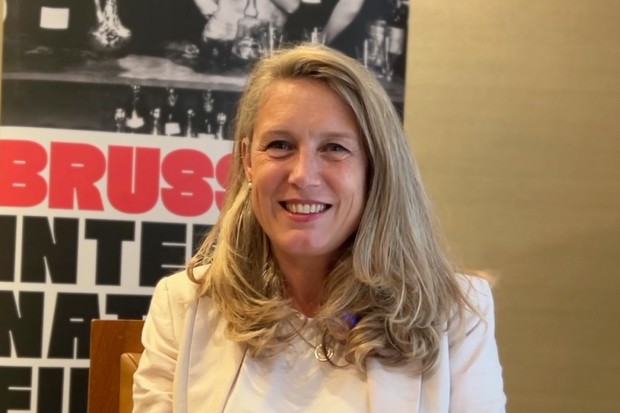Pascale Bourgaux • Director of Hawar, Our Banished Children
"In times of war, the female body is a battlefield"
- We met with the Belgian journalist and filmmaker to discuss her shock documentary, revolving around a female survivor who suffered twice at the hands of jihadists and her community

In Hawar, Our Banished Children [+see also:
film review
interview: Pascale Bourgaux
film profile], Pascale Bourgaux home in on Ana who has survived jihadists and her community twice. By way of Ana, the director not only shines a light on the fate of all those Yazidi women kidnapped by Daesh, but also that of their "forbidden" children. The film was screened in BRIFF’s National Competition.
Cineuropa: How did this project come about?
Pascale Bourgaux: The film first saw the light of day in 2014. I went to Iraq at the time when Daesh was invading the country. We realised that there were a lot of women who’d been kidnapped, hidden away and raped. I left for Envoyé spécial to make a 26-minute report. After that, I realised that if thousands of women had been raped every day, there had to be children born as a result of this. It took me a long time to work out what had happened. Where were these children, who were totally invisible? In the orphanages we contacted, they refused to say whether the children came from those situations; they organised illegal adoptions. Not even the Yazidi community recognised their existence. I met with religious leaders and, when I confronted them head-on about it, they pulled off their mic and walked off. For years, I tried to find those children, to understand the mechanism in place to ensure their invisibility, which all those Yazidi mothers had also been victims of. And then I was lucky enough to be helped by Mohammad Shaikhow, my co-author who’s a young Kurdish director and who knows the Yazidi community really well, which helped speed things up. Then we needed to win Ana over - which obviously isn’t her real name - and gain her trust. She found her daughter who’d been totally hidden away; her family doesn’t even know she’s back in contact with her, that she’s taken her out of the orphanage. Her community doesn’t either, obviously.
Like in many other conflicts, we realise that the female body is both a spoil of war and a political weapon.
Absolutely. It’s a double punishment for her. Women are kidnapped, raped. Then, when they come home to their communities and their families, which should be the place where they feel welcome and loved, a place where they can piece themselves back together, or find resilience, they’re punished, for being pregnant and for being made pregnant through those repeated rapes. At times of war, the female body isn’t only the favoured battleground of the fighters, sadly it’s also that of the families in such situations.
We hear Ana, but we’re always behind her. How did you devise this approach with her?
I’ve investigated this situation for 8 years, but Ana is the only woman who’s agreed to bear witness to it, anonymously. So we had to find a way to make up for the fact that we wouldn’t see her. My co-author Mohammad had the idea to go on a trip with her, which would ultimately allow her to see her daughter again. I think she’s really aware of the fact that she’s the first to talk, to break a taboo. She’s doing it for all those other Yazidi women, those survivors who had to abandon their children and are crying in silence.
What was the biggest challenge for you?
There were a lot of challenges. To begin with, my friends on the ground in Kurdistan would say: "you’re crazy, you’re looking for children who don’t exist. No-one’s ever going to talk to you about this. It’s taboo, it’s dangerous". But we persevered and we found Ana. What was complicated after that was convincing partners to finance the film. I knocked on the door of every single production company in Paris, where I live. Nobody believed in the project, saying that the subject was too specialist. So I came back to Belgium and to my long-term production partner Iota Production, via Isabelle Truc, who said yes immediately.
(Translated from French)
Did you enjoy reading this article? Please subscribe to our newsletter to receive more stories like this directly in your inbox.















